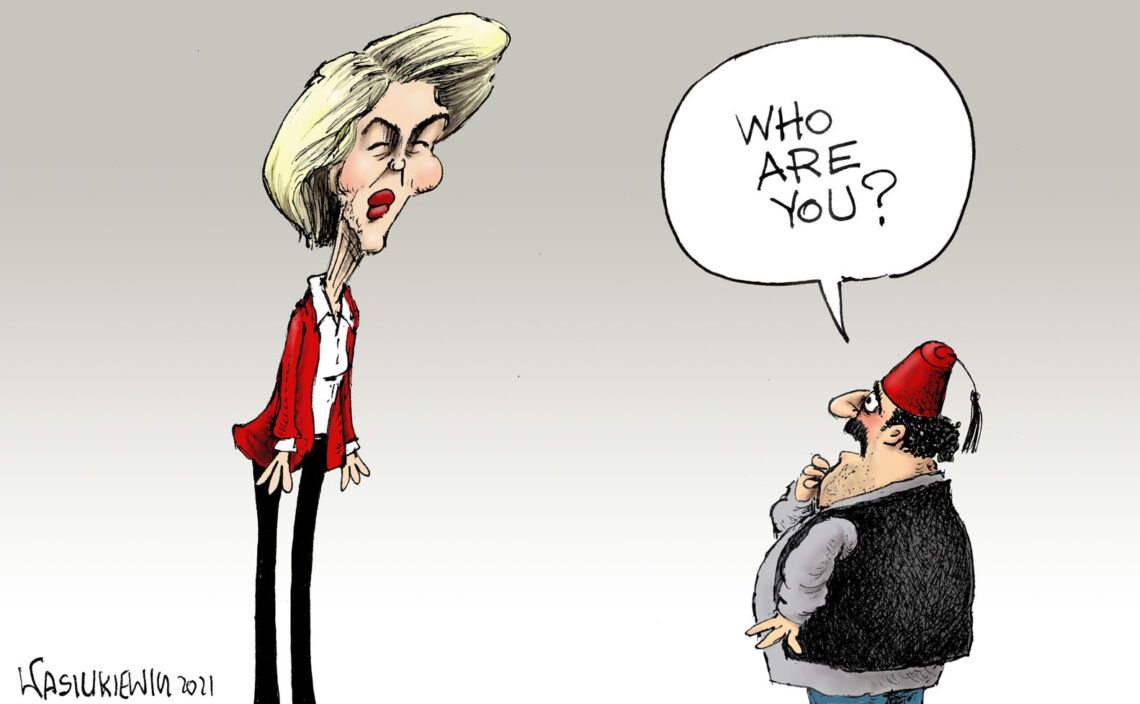Europe needs more realpolitik
Europe’s foreign policy is poorly conceived, ill-targeted and amateurish in execution. Adding an institution outside the EU governance system to improve Europe’s international standing could make Europe more pragmatic.

To play an international political role that would be commensurate with its economic and demographic weight, Europe needs to acquire the appropriate foreign and security policy capabilities. The task necessitates a new policy center to be built perhaps outside the European Union’s existing institutional framework.
A good start
Seventy years ago, on April 18, 1951, Belgium, France, Germany, Italy, Luxembourg and the Netherlands signed the European Coal and Steel Community agreement. The objective was to bring stability to an industry that was critical at the time. It was also equally important to policymakers to build the foundation for lasting peace on the continent. The approach proved hugely successful and led to the European Economic Community and today’s EU. Economic collaboration facilitated a thriving internal market in Europe and, eventually, a political Union.
As hoped, the process brought Europe unprecedented peace and prosperity. Until World War II, European powers were periodically at war, but the continent has overcome this state of affairs at long last. The institutional process of economic integration rests on four freedoms of movement: people, goods, services, and capital. More recently, the Maastricht Treaty and the Treaty of Lisbon have been added to the Union’s architecture to define its political aspects. The EU’s supreme body is the European Council, representing the national governments; the European Commission constitutes the executive branch.
It remains unclear what the Union’s role in the foreign and security policy realm should actually be.
Foreign policy was (and still is) left to the member states’ governments. However, since the 1997 Treaty of Amsterdam, the Union has high representatives for foreign affairs and security policy. They take part, together with envoys from large EU national governments, in multilateral activities and meetings, such as the G20. The Lisbon Treaty has boosted the representatives’ importance. As a result, the EU tries to be more active in foreign policy, but Brussels’ primary international responsibility remains the negotiating of trade treaties.
Unfortunately, conducting international policy requires skills, expertise and experience that Brussels still lacks. Another significant problem is that, despite the above-mentioned treaties, it remains unclear what the Union’s role in the foreign and security policy realm should actually be.
The challenge ahead
Foreign policy is a game of interests. To succeed, one needs clearly stated objectives, a pragmatic approach and a clearheaded assessment of one’s own position: the strengths, weaknesses, opportunities and threats – a classic SWOT analysis. The EU apparently considers itself a moral, economic and regulatory superpower. The moral and regulatory aspect is supposed to be a great tool in enforcing the Union’s principles worldwide.
Effective and sustainable international policy requires two elements: money (a healthy economy) and cannons (compelling and credible deterrence). Europe used to have a superior economy; unfortunately, it has been declining compared to other parts of the world. And it has no effective deterrence. These shortcomings, combined with a poorly specified foreign policy role, weaken the EU’s hand. It is also debatable whether the present institutional framework, borne out of trade and economic endeavors, fits the Union’s international function. This mismatch may explain the ill-defined foreign policy objectives and some recent spectacular diplomatic failures.
Aside from the United States, Europe’s most critical partners and counterparts in foreign policy and security are Russia and Turkey. And it is precisely toward these countries that Brussel’s moral and regulatory pretenses have brought abysmal results. In early February this year, High Representative Josep Borrell traveled to Moscow to raise the issue of human rights. He ended up listening helplessly as Russian Foreign Minister Sergey Lavrov, perfectly prepared, lectured the European delegation on the West’s failures.
European countries should create a properly structured institution to manage their foreign and security interests.
Similarly, when European Council President Charles Michel and Commission President Ursula von der Leyen visited Turkey, the European protocol failed to ensure that Ms. von der Leyen, who is not a head of state, would be appropriately treated during the function. Embarrassingly, at a meeting with the Turkish president, she ended up sitting on a side sofa. The diplomatic incident was degrading to the EU.
When blamed for this, all that Mr. Michel had to offer was his assurance that he had had some restless nights over the situation. How will the EU Council head sleep when a major challenge arises for the Union? In any case, the self-righteous approach in dealing with other countries does not work. Lecturing others on European standards is not going to help make the world a better place. All this does is make some Europeans feel morally superior – in a shallow, hypocritical way.
What needs to be done for a more pragmatic Europe
The European Union is not Europe. It is an essential institution bundling the interests of an important group of medium and small powers on the continent. This way, they can both benefit from a common internal market and be globally competitive. However, the attempt to have a single institution handle the member states’ foreign and security interests, which vary greatly, is bound to bring poor results.
Perhaps European countries should now create a separate, properly structured institution to manage their foreign and security interests. It may not be necessary for that structure to have all the same members as the Union. Such an institution could facilitate closer cooperation with NATO. It could also allow the EU to have more equitable relationships with other powers, especially Russia.
The EU has two members, Finland and Austria, who are prohibited by international agreements from joining NATO. In an alternative setup, these European countries could preserve their neutral status. The biggest advantage would be that the United Kingdom, a considerable military power with a rich global policy experience, presently outside the Union, could be integrated into European security policy.
